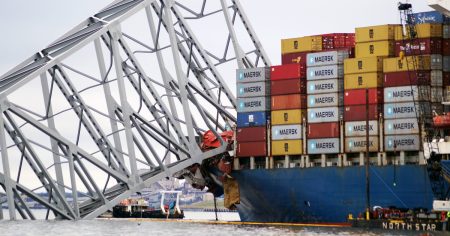A Marine Corps veteran and former militia member, Russell Vane, was ordered to remain jailed pending trial on charges of attempting to make ricin, a biological toxin. Vane was arrested after authorities found traces of ricin, lab equipment, and castor beans in his home in Virginia. The Virginia Kekoas militia had severed ties with Vane due to concerns about his loose talk regarding homemade explosives and questioned if he was a government informant. This led to a federal investigation and Vane’s arrest.
During a detention hearing in U.S. District Court, Vane’s lawyer argued that the government had overcharged him and urged his release on home confinement. Despite the defense’s claims that Vane had not threatened anyone and manufacturing ricin as a lethal weapon at home was nearly impossible, the judge sided with prosecutors. U.S. District Judge Anthony Trenga stated that Vane posed a potential danger to the community and there was no innocuous reason for him to be trying to manufacture ricin. Evidence also suggested that Vane might be a flight risk, as he had recently attempted to legally change his name and posted a fake online obituary.
Vane’s home contained an “Apocalypse Checklist” outlining steps for evacuating a home with necessary provisions, indicating a possible preparation for a catastrophic event. Despite the defense’s arguments, the judge determined that Vane should remain locked up pending trial. The presence of ricin in his home, along with evidence of attempting to manufacture the toxin, raised concerns about his intentions and capabilities. The judge’s decision not to release Vane on home confinement reflects the seriousness of the charges and the potential threat he may pose to the community.
The case against Vane highlights the dangers posed by individuals attempting to manufacture biological toxins such as ricin. The presence of ricin in his home and the evidence suggesting his intent to produce the toxin raise questions about his motivations and potential threats to public safety. The judge’s decision to keep Vane in custody pending trial underscores the seriousness of the charges and the need to prevent any potential harm to the community. The investigation and arrest of Vane also demonstrate the importance of monitoring individuals with concerning behavior or affiliations to prevent potential acts of violence or terrorism.
The court proceedings and evidence presented in Vane’s case shed light on the risks associated with individuals attempting to create dangerous substances like ricin. The judge’s decision to keep Vane in custody reflects concerns about his potential danger to society and his preparedness to manufacture a lethal toxin. By taking action to prevent any potential harm, the court sends a message about the seriousness of attempting to produce biological weapons and the need to protect public safety. Vane’s case serves as a reminder of the threats posed by individuals with access to dangerous materials and the importance of monitoring and addressing concerning behavior to prevent potential acts of violence.















